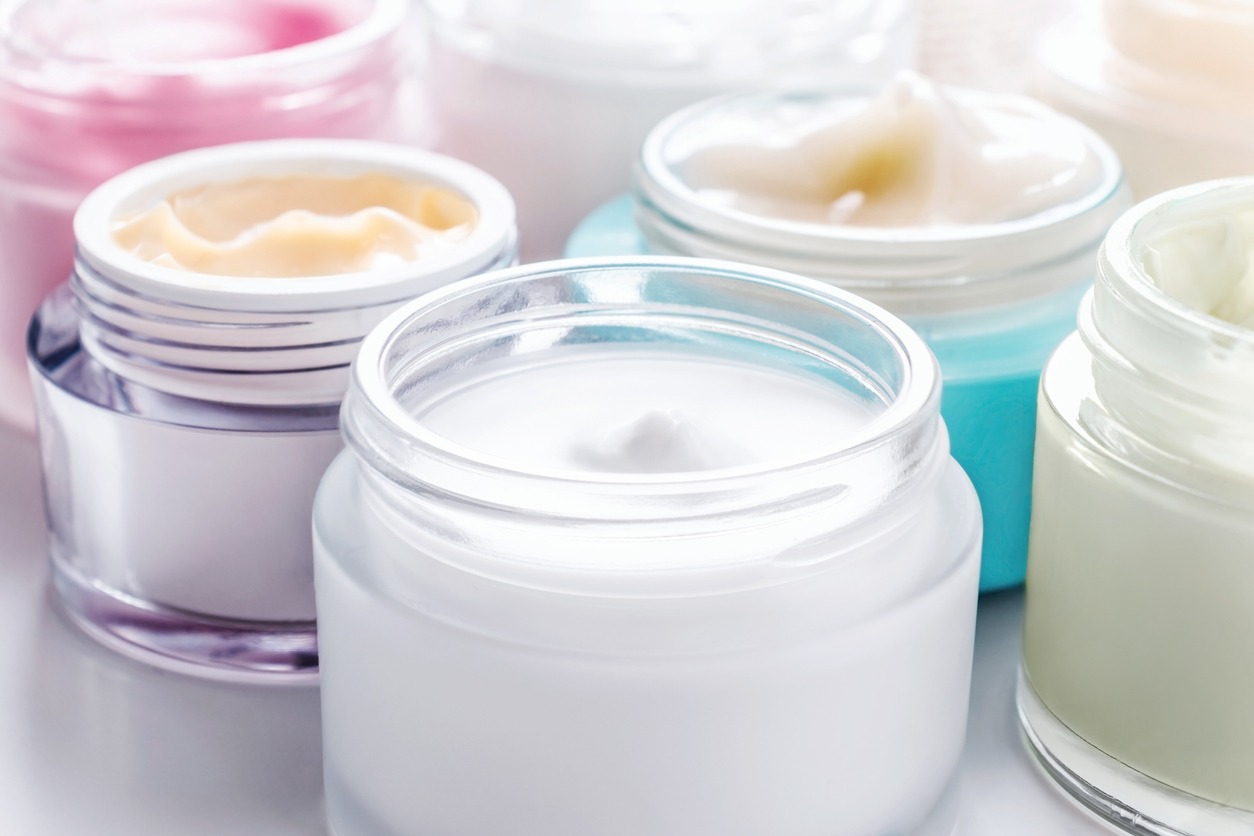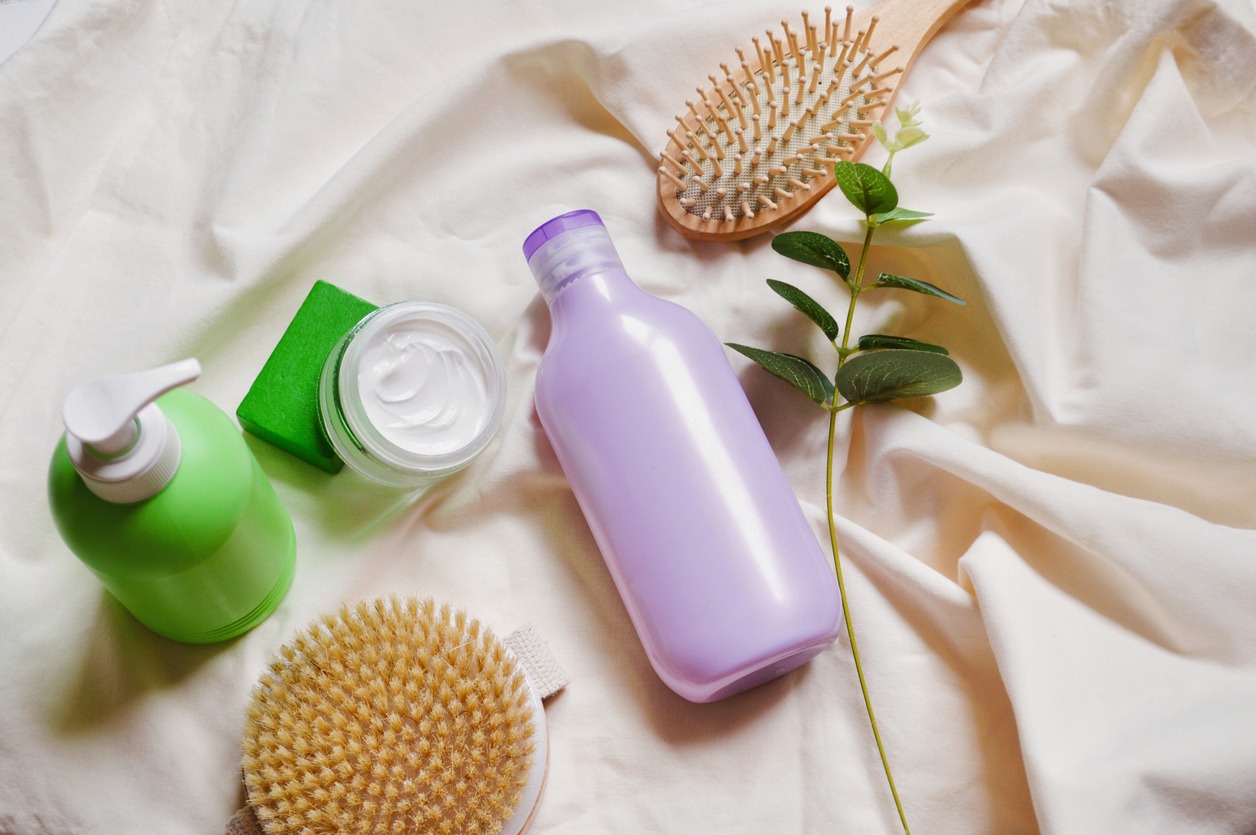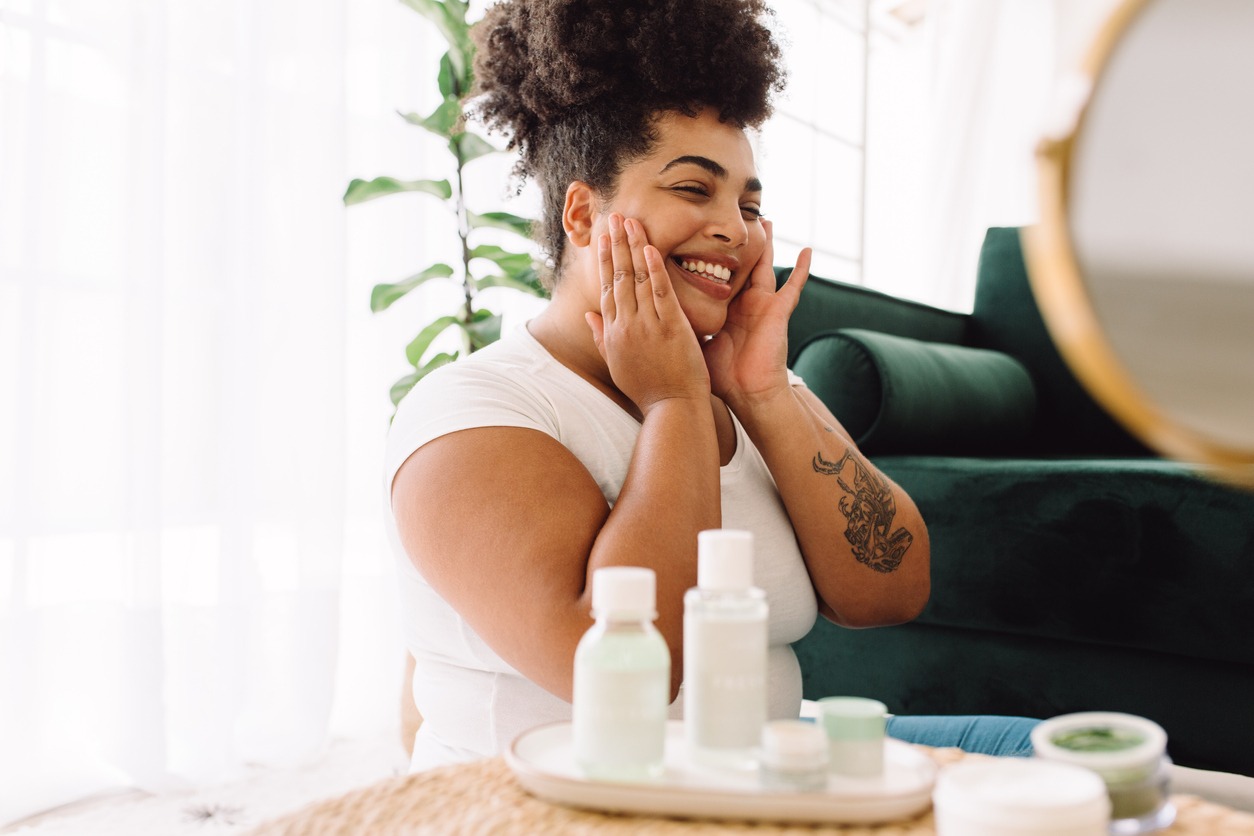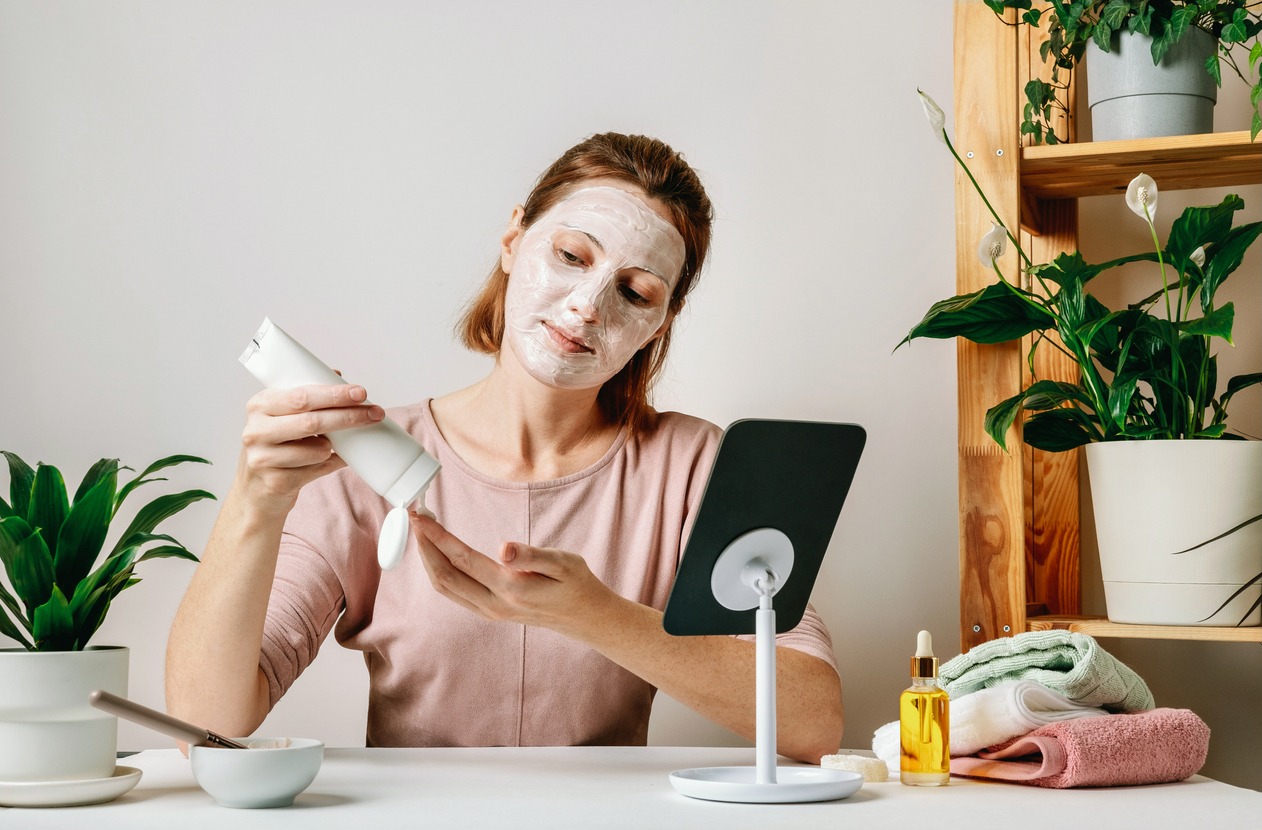One of the key elements of a skin care routine is moisturizing. Frequently, buying different moisturizing lotions for your body and face might be expensive. To keep the skin hydrated and moisturized from head to toe, many people apply body lotion on their face and bodies. For many people, applying body lotion to the face is a common practice. The moisturizer for the body and face is frequently interchangeable. Even now and then, people mix up face lotions with hand creams. Before discussing applying body lotions to the face, it is important to understand the fundamental differences between the skin of the face and the rest of the body.
Body Lotion vs. Facial Creams
To put it simply, the skin of your face and the rest of your body require different treatment routines. Face skin is substantially more sensitive and thinner. In comparison to other parts of your body, the skin on your eyes is among of the thinnest and most sensitive. Additionally, the pores of the face are smaller and contain more skin oil glands, which makes acne more likely to develop. The skin on your feet and back, though, is thick. Although the pores on this skin are larger, it is also tougher and more resilient. These distinctions are typically reflected in the skin care products for the body and face.
In general, body care products work better to moisturize or exfoliate the skin. But they can be too strong or hostile for the delicate skin of your face. Face creams, on the other hand, are created specifically to protect this delicate skin. Additionally, many facial skins care products provide a more focused goal, such as treating acne or lessening the look of redness or discoloration, dark spots, or wrinkles.
In fact, you’ll see that a lot of facial products aren’t even lotions, they’re creams instead. Lotions are more liquid and water-based than creams, which are frequently richer. Additionally, facial skin is exposed to the elements—such as heat, cold, and UV rays—for a much longer period. As a result, many facial solutions serve two purposes: they aim to address any skin issues you might have while also helping to protect facial skin from potential harm.
Body lotions and face creams serve various skincare purposes; hence they have different components. To seal in moisture, body lotion frequently contains hydrating substances like oils or butter. Acne and other skin conditions can result from these heavier substances. The aroma of a body lotion is another factor to consider More delicate skin might quickly get irritated by certain perfumes. There are typically more active chemicals that address skin issues in creams and facial lotions. Since these components are frequently more expensive, body lotions do not typically contain them. Your facial cream has probably gone through more thorough testing to make sure it is secure and efficient.
Disadvantages of Using Body Lotion on Face
For soft and supple skin, using a bo dy lotion is a must, but you shouldn’t use the same lotion on your face. Here are a few explanations.
- Your face has more fragile skin. Your face has considerably more fragile skin than the rest of your body. This is because your body skin is not as exposed to external variables as your face is, it tends to renew cells at a far slower rate than skin on your face. This is what causes the skin on your face to be thinner and more delicate, and the skin on your body to be thicker. As a result, body lotions contain a lot more cream, are thicker, and are sometimes considerably oilier.
- Using body lotion on the face might trigger allergies. The sensitive skin on your face is especially vulnerable to the allergens in body lotions. This is since the skin on your face is considerably more delicate than the skin on your body, making it more susceptible to damage from the chemicals contained in a body lotion.
- Body lotion on the face leads to acne and blocked pores. Lotions for the body are typically much creamier than those for the face. As a result, when body lotion is applied on the face, dust and other pollutants can accumulate there and remain there until the lotion is washed off. This buildup of debris can clog pores and result in acne. This isn’t the case, however, with creams designed specifically for the face because they include fewer, lighter moisturizing chemicals that won’t make your face appear overly greasy. This is true even if you have dry skin and use a cream to wet it.
- Body lotion includes a lot more chemicals. Body lotions are far more fragrant and colorful than face creams. Because the skin is thicker, body lotion makers can incorporate more chemicals. All these chemicals have the potential to harm your skin severely and possibly trigger skin damage on the face.
- Side effects from using body lotion to the face include redness, stinging, itching, and acne outbreaks. It can be more harmful to use thick body lotions on the thin, fragile skin around your eyes than it is to use none. These lotions can block pores, causing milia, which are tiny white cysts that are frequently found around the eyes.
Safe Body Lotion to Use on the Face
Most body lotions are not intended for facial use. However, some cosmetics, especially for dry and dehydrated skin, can be applied to both the face and the body. Some body creams or lotions are made to be used on extremely dry, cracked skin, especially during the winter. Before using the product, just be sure to read the label to make sure it is designed specifically for the body and face.
Use a moisturizer or moisturizing product designed for your skin type on your face. The improper lotion could irritate your skin or make your skin problems worse if you use it. Visit your dermatologist to determine your skin type; they can tell you what problems you have and how to treat them. Additionally, they will make product recommendations that suit your skin type. It will be considerably simpler to decide what moisturizing lotion to apply on your face once you have established your skin type.
The main skin types and recommendations for the kinds of moisturizers and lotions you should think about using are provided. Keep in mind that everyone is unique! There are some products that commonly work for disorders and skin conditions, but you can’t certainly tell what will work for each type of skin.
1. Skin Sensitivity
One of the trickiest skin types to select cosmetics for is sensitive skin. You most likely have sensitive skin if it is red, blotchy, reactive to products, and easily irritated. When a product contains a lot of chemicals or extra fragrance, your skin may react even to the tiniest amount of it. Many people also experience skin reactions due to allergy to specific products and ingredients.
Unfortunately, the only way to find a product that is effective for sensitive skin is by trial and error. What works for one person may entirely irritate another. But typically, basic moisturizers are effective. Your best options are sensitive skin moisturizers from drugstores or those prescribed by your dermatologist.
2. Dry skin
If your skin is flaky, tight, or readily absorbs moisturizer when it comes into contact, you likely have dry skin. Because of the flaking and dryness of your skin, it may also appear red. These are the typical symptoms of dryness. Fortunately, when it comes to skin problems, dry skin is one of the simpler ones to treat. It usually stems from one of three issues: your moisturizer is too light, the environment is impacting it, or your products are too harsh and produce excessive skin shedding.
With thicker and heavier creams, those with dry skin can achieve success. Try to stay away from scents as well if you have redness and flakiness because they might aggravate and dry out your skin even more. Exfoliating substances like retinol and certain acids should also be avoided. These have a reputation for being harsh on the skin and can exacerbate dryness. Always use components that are especially moisturizing, like as hyaluronic acid, vitamin E, and water.
3. Oily skin
People with oily skin frequently experience oiliness in the T zone, which is the area around their nose, forehead, chin, or just the forehead. People rarely have greasy cheeks, but it does occasionally happen. Excessive sebum production, which occurs when your skin’s oil glands begin secreting more sebum than it can handle, is the cause of people becoming oily. Although this natural oil is vital for the health of the skin, producing too much can clog your pores and lead to acne.
If this describes your skin, consider choosing very mild moisturizers. Use ones that resemble gel. Depending on how oily your skin is, even products that are lighter than a moisturizer, such a hyaluronic acid serum, may work. To assist absorb the extra oil, you can also try moisturizing products that are mattifying or have anti-shine properties.
4. Normal Skin
You should count yourself lucky if you have normal skin. This indicates that your skin barrier is strong and healthy, which guards against problems like acne, rosacea, and other conditions of a similar nature. Normal skin is often non-reactive to skin care treatments and may tolerate harsher and more potent chemicals like glycolic acid and retinol. Additionally, your skin type may be able to tolerate additional components like scents.
There are numerous types of lotions available for skin that is normal. With a thicker cream in the winter and a lighter one in the summer, you’ll probably want to switch up yours according to the season. In addition, you may simply test out a few various options until you find the one you like most.
5. Aging Skin
Mature skin typically appears post-menopausal in women and between the ages of 40 and 50. Remember that each body is unique and that these are merely generalizations. Acids, retinol, and retinoids are examples of harsher products that mature skin may tolerate. It is also capable of withstanding harsh therapies including lasers, micro needling, and skin resurfacing. For those with mature skin, stronger anti-aging creams or creams with components that specifically target wrinkles and hyperpigmentation should be sought out. A thick cream will do great if you don’t want anything aggressive.
Conclusion
The occasional use of body lotion to the face won’t hurt your skin but making it a habit could be bad for your complexion over time. Skin is hydrated and protected by body lotions and facial moisturizers, but they work differently. They have been created especially for the skin of your body and face. On the market, there are several moisturizers that are suitable for both the face and the body, especially for dry skin.
However, you want to avoid applying body lotion to your face and instead use a face moisturizer. This will prevent rashes, breakouts, and allergic reactions. Remember that not all body lotions function in the same way. Some lotions are safer than others and have greater advantages than others. Your best bet is a body lotion that is light and soothing. It shouldn’t be comedogenic or oily. Stay away from body butter and lotions designed for dry skin. If they are overly thick, they may result in outbreaks.
Now that you know why, hopefully it makes sense why you shouldn’t apply body lotion to your face. The type of moisturizers or face creams you can use will be more confined once you know what skin type you have.





